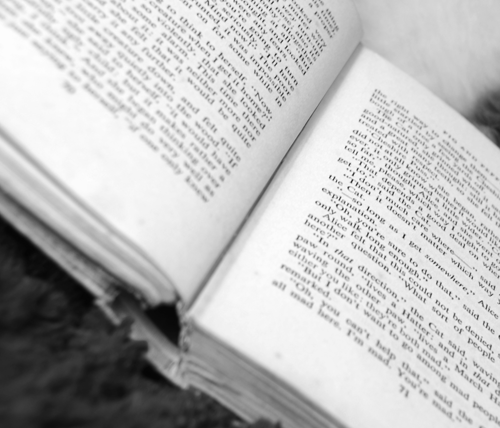A couple of weeks ago I decided to open the floor[i] to questions: writing worries, query quandaries, or questions about the deeply mysterious hooded figures world of editors and editing. The following are some of the questions that came through on Tumblr, Twitter and Facebook…
FADE IN:
EXT. MOUNTAINS. SUNRISE. MIST.
<BIRDSONG>
* * *
Q. What makes a book good to edit?
Assuming we’re talking fiction: the same thing that makes it good to read – a good story.
I work on different levels of edits and with writers at different career levels. It is an amazing experience to do developmental work with someone who is starting out – discovering the story and characters with them. But it’s also enjoyable to work with authors who already understand the writing/publishing process and who have handed in something that, on first glance, already looks publishable. (Because sometimes that’s a challenge[ii].)
Often it’s less about the book so much as the author. An author who is resistant to the very idea of editing is hard to work with. But then I consider it part of the editor’s job to explore why this might be the case so you can develop a productive working relationship. Ultimately you both want the book to be the best it can be, so you really ought to be able to work together rather than battling each other.
Q. (cont…) My attitude is to (attempt to) get my work to near publishable level, then work with an editor on substantive things…
That is exactly what I try to encourage people to do. Hiring an editor too early (if you choose to hire one
– critique partners and writing groups can work wonders too) can be very expensive.
I see writers who end up paying an editor to do the kind of clean-up the author could probably have done themselves (bad spelling, obvious grammar errors, awkward sentence construction) and thus miss out on the closer eye, subjectivity, and expert insight they actually signed up for[iii].
It’s like any other job you might hire a professional for: painting, cleaning, renovating. You’re paying for their time as well as their expertise, so the more “basics” you can clear before they start (shifting furniture, picking up odds and ends etc.) the more time they have to concentrate on the things you may not want, or be able, to do yourself.
This isn’t something that only applies to beginners or self-publishing authors, either. Even if you’re not hiring an editor, if you’re working directly with a publisher, that process applies.
An unedited first draft will take a publisher more time and resources (usually on a limited budget) than a manuscript that has already been fairly well developed and polished by the author. In fact, it could be the difference between the publisher accepting your manuscript to begin work and sending you off to rewrite it. (Even if you have already signed a contract.) However, some authors just hate self-editing, and there are experienced, traditionally published authors who will hand in their first draft for the publisher to sort out.[iv]
A lot of people starting out may just not realise how much reworking is involved. If they are not part of a writing community and/or they haven’t (for whatever reason) ever read anything much about the writing or publishing process, they may simply not know how to redraft or edit themselves. Especially if the only thing they have heard is that they “need” to hire an editor.
It helps to know the different edit levels and services that are available. And it’s also worth keeping in mind that some editors and organisations also offer mentoring, which can be useful if you’re not quite ready for an editor but want some professional guidance.
* * *
FADE OUT.
Thanks everyone who joined in and asked questions! I’m always happy to answer editor questions, if I can.
Drop a line in the comments or ask me on Tumblr, Twitter or Facebook. (And if I can’t help there’s sure to be someone online who can!)
[ii] By which I mean it can be difficult to find anything that needs changing – which is excellent for the author but a source of stress for an editor!
It’s not that we believe no one is capable of writing anything properly in the first place, it’s just that we’re employed to find problems and if we can’t see any we assume a) we’ve missed something that will immediately be obvious to someone else, and b) that whoever has employed us (either the writer or a publisher) will assume we haven’t done anything if nothing is marked up. This means we will never be hired again and we will starve to death in a hovel somewhere. It’s not a judgement on the quality of an author’s work; if you think we’re tough on authors you should know we’re 10 times tougher on ourselves!
The flip side of this is being given something to edit by someone who is exceptionally talented/experienced/knowledgeable… in which case there is that competing stress that causes us to second guess any edit we might think about considering marking up…
[iii] More on this in the next post…


First of all I would like to say wonderful blog!
I had a quick question in which I’d like to ask if you do not mind.
I was curious to find out how you center yourself and clear your mind before writing.
I’ve had a hard time clearing my mind in getting my ideas out there.
I truly do take pleasure in writing but it just seems like the first 10
to 15 minutes are wasted simply just trying to figure out how to begin.
Any recommendations or tips? Thank you!